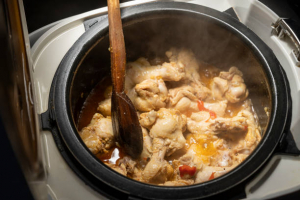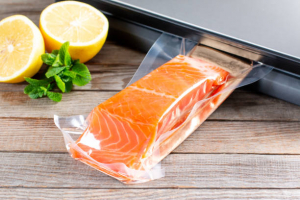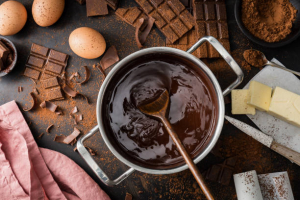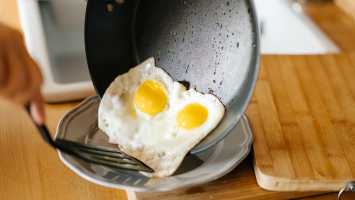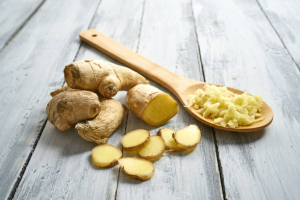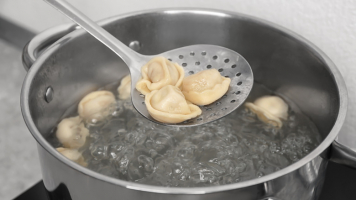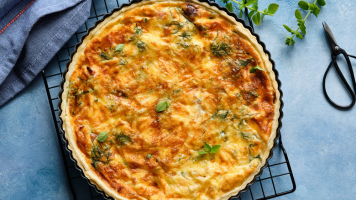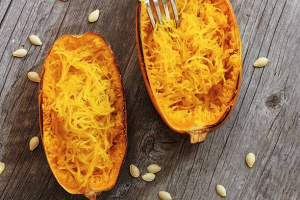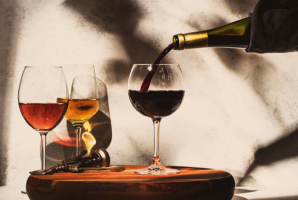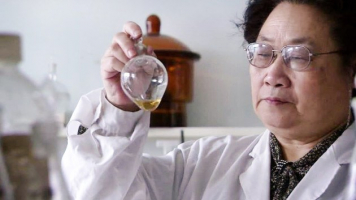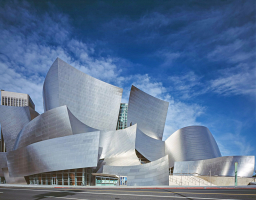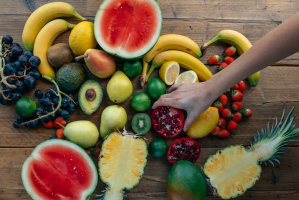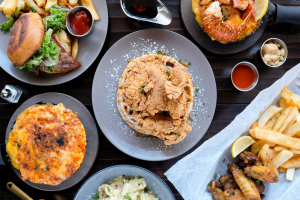Top 10 Best Tips You Need When Cooking With Wine
Wine may be used in cooking in a wide variety of ways, and it can greatly enhance the flavor of a huge variety of meals you have on hand. You should know how, ... read more...when, and why to add wine to the foods you create rather than just pouring it into everything you cook. Here are the best tips you need when cooking with wine.
-
Don't cook with wine you wouldn't want to drink. Even though you've undoubtedly heard this guideline a hundred times before, it is still important to remember. You know those wines that, when you take a sip, immediately strike you as being excessively sweet or too acidic? Pouring the wine into your food may seem like a novel method to get rid of it, but doing so is not in your best interests. The adage "if you wouldn't drink it, it probably won't taste that nice when you put it in your meal either" is accurate, according to The Guardian.
Cooking does reduce some of the alcohol and flavor of wine, but it won't completely affect the wine's harshest flavors, according to Serious Eats. According to the cookery website, if a wine tends to be more acidic or sweet, it will probably show through in a concentrated taste. The last thing you want to happen is to bite into a dish and discover that something didn't taste right, turning it into something too sweet, sour, or worse. Open a bottle you enjoy and pour from there instead; your dinner will taste better as a result.
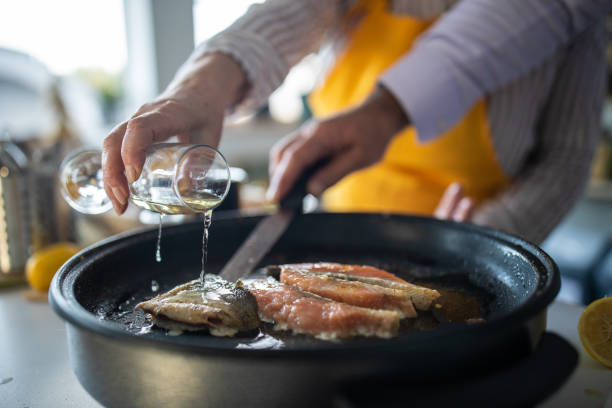
Don't cook with wine you wouldn't drink 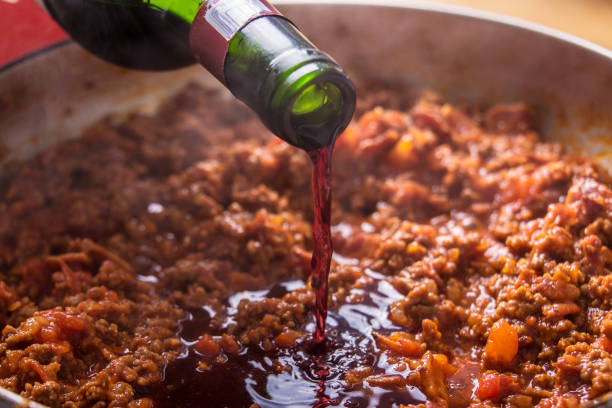
Don't cook with wine you wouldn't drink -
It's true that you shouldn't use wine that isn't fit for drinking when you're cooking. That doesn't imply that you ought to grab your pricier, older wines either. You may fully appreciate the rich nuances and enticing scents that give a wine its individuality when you open a quality bottle and take a drink. It makes sense to assume it would be ideal for incorporating into a certain recipe, but as Serious Eats notes, that's not the case.
When you blend the wine with whatever other components you're using, some of those delicate scents and tastes will be lost, claims the culinary website. Butter, olive oil, salt, and spices will combine with the wine and change its taste profile, muffling many of the subtle characteristics you seek in a glass of wine. Additionally, according to Food Network, alcohol may be boiled off to a maximum of 75% in just one hour. In that respect as well, you won't really taste the wine. It is best to save your money and drink your superb wine straight from the glass rather than thinking you have to buy a pricey bottle of wine only to add an extra component.
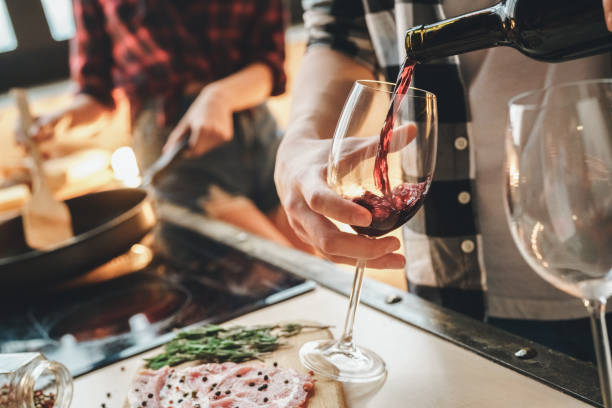
Choose a fairly inexpensive wine 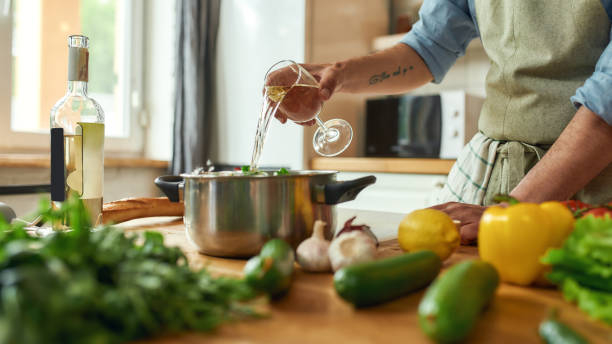
Choose a fairly inexpensive wine -
There are several ways to include wine in your cuisine, but marinades are one setting where it is sometimes overlooked. A nice red or white wine, however, may elevate a marinade that is already wonderful to a new level. According to Wine Folly, the wine will often serve as the acid in marinades. With a wine that has a lot of flavors, you get a beautiful one-two punch from acid, which both tenderizes the flesh and changes taste.
You should consider the components you're using before grabbing any old bottle of wine, advises Wine Folly. Use a zesty, acidic white wine with few complexities, for instance, if you're marinating something like fish, according to MasterClass. However, a rich white wine like Chardonnay might complement your protein if you are marinating chicken. Similarly, WineFolly advises using red wine marinades for large cuts of meat; MasterClass also encourages combining reds with recipes that use beef. To choose the sort of wine you should use for your marinade, just consider the type of wine you would want to sip with a certain food.
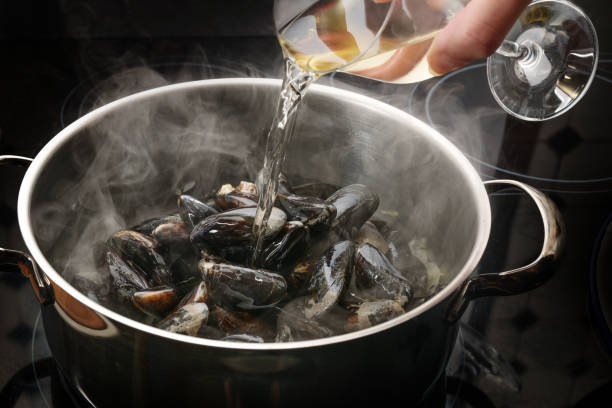
Use your wine as a marinade 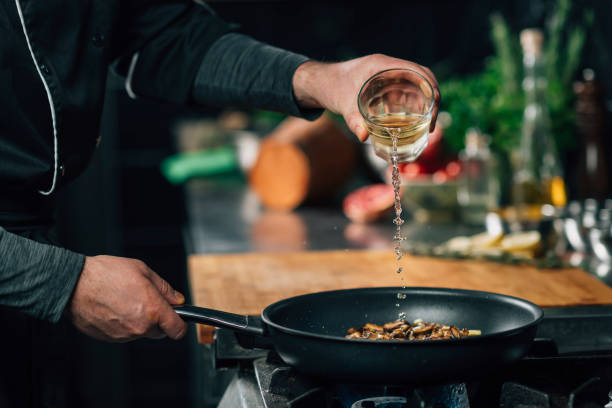
Use your wine as a marinade -
You might believe that you can add wine to your food at any stage of cooking, but this is untrue. Depending on what you're cooking, you should add wine at different times, but What's Cooking America recommends that you avoid adding wine too late. When your food is going to be served, adding a large amount of wine right before serving might make it taste harsh. What's Cooking America suggests waiting 10 minutes to allow the wine to boil down and burn out any unfavorable flavors since you don't want your meal to taste like it's been injected with alcohol.
According to Fine Cooking, you should add the wine to long-simmering stews, braises, or sauces right after the liquid begins to simmer and your other components have begun to brown. After that, you'll let the wine slightly diminish so that the flavors may concentrate and the alcohol can be cooked off. Fine Cooking advises adding any additional liquids you're using, such as stock after the wine has reduced. As a sauce cooks, you might think about adding some red wine. Lorenzo Boni, the executive chef of Barilla America, suggests using a red wine reduction in Insider.

Don't wait until it's too late 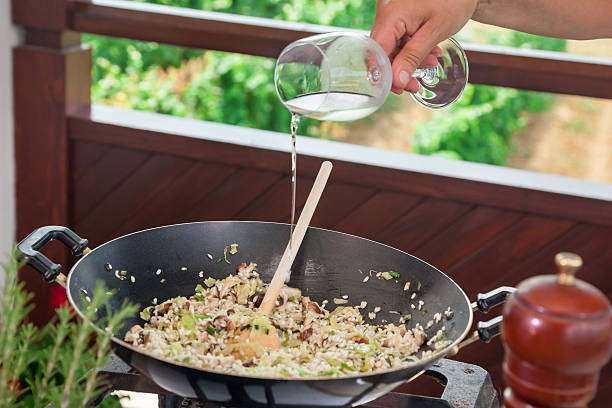
Don't wait until it's too late -
If you want to show off your culinary prowess, you might be intrigued to try your hand at flambéing a meal. Have you never heard of this method? It happens when you put alcohol in your pan and then light it on fire to create a flash of flames (Source: What's Cooking America). You should use caution when making the flambé and switch off your heating source before you begin. Alcohol is added to the pan before flambéing to give the flame something to burn. What's Cooking America's advice is that this method gives your food a rich liqueur flavor. Good Housekeeping warns that you might be unhappy to learn that alcohol cannot be used to flambé a meal.
Wine does not burn because its alcohol concentration is not high enough. According to Good Housekeeping, you should substitute liquor with a 40% alcohol content or less. What's Cooking America advises that you can continue adding wine to your food after the flames have burnt off or been smothered, despite the fact that you cannot flambé with wine. Just keep in mind to allow the wine time to savor.
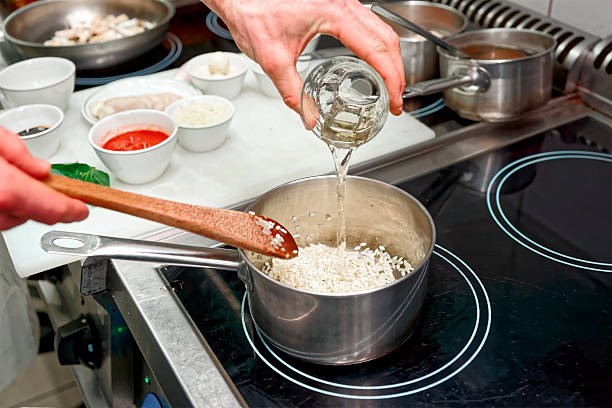
Don't try to flambé wine 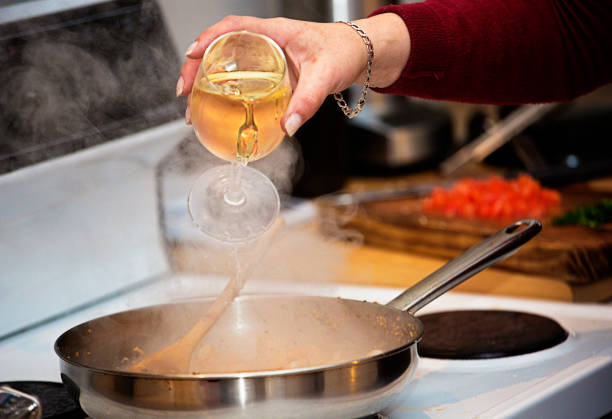
Don't try to flambé wine -
Have you ever opened a bottle of wine with the intention of drinking it within a few days but found yourself leaving it open after those few days had passed? That can be disappointing, especially if the bottle of wine is superb. Wine wastage doesn't have to be a frequent issue, particularly when there is a simple fix that can be used to assist you to avoid it.
Pour the leftover wine into an ice cube tray and freeze it whenever you're done with a bottle or don't believe you'll be able to finish it before it spoils (via Food & Wine). Then, if you wish to cook with wine, you can just drop one or two ice cubes into your meal to achieve the distinct, nuanced tastes you're aiming for instead of opening a new bottle. According to Coastal Wine Trail, this won't taste precisely the same as it would if you were using wine straight from the bottle, but it will still be better for cooking because the wine's flavor is diminished.
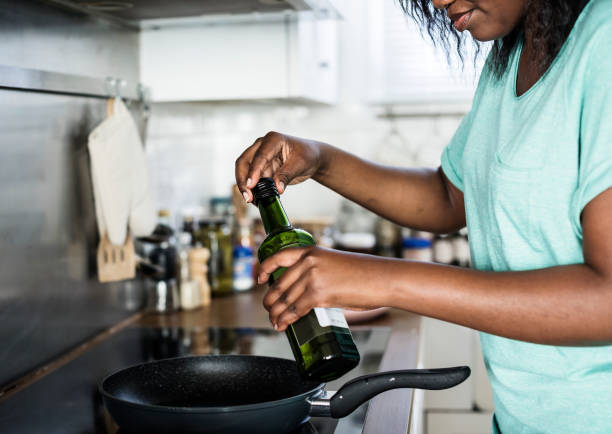
Freeze wine cubes ahead of time 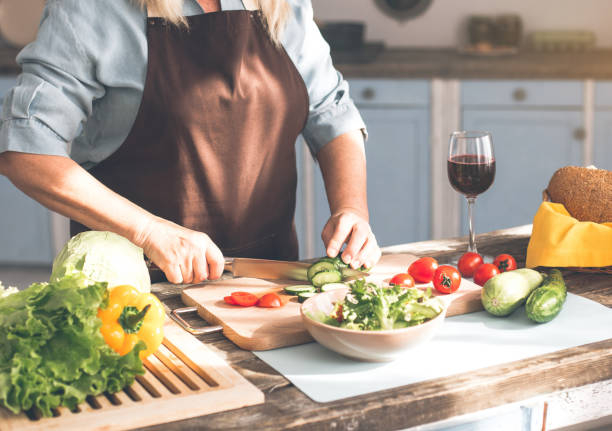
Freeze wine cubes ahead of time -
Is there a vermouth in your house? If so, you might want to try cooking with it. Although you might not consider vermouth to be wine per, Eater explains that it is a fortified wine that has been aromatized. An aromatized fortified wine also adds herbs and spices to give it a more rich flavor. Fortified wines are produced with more alcohol added to them.
You already know how good vermouth is if you've ever tasted it on its own or in a cocktail. However, you'll discover that it has, even more, to give when you add it to whatever you're cooking. Vermouth may be substituted for white wine in any recipe that asks for it, although it will likely have a stronger flavor than a standard white. Vermouth has a variety of unique tastes that some people love when cooking with it, while some people just like it because it's convenient to have on hand. Keeping a bottle of vermouth open at all times shouldn't be a problem because it won't spoil as quickly as a bottle of wine.
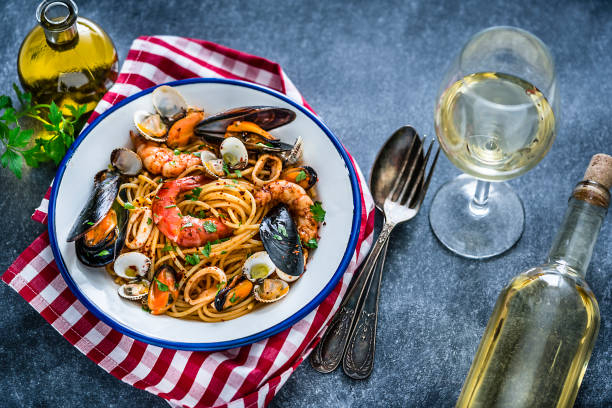
Try using vermouth 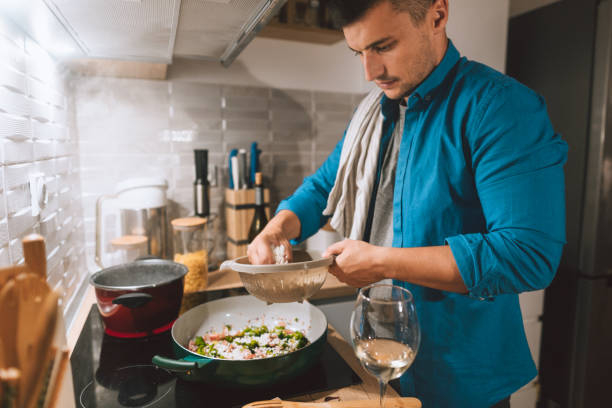
Try using vermouth -
Everyone has a distinct preference for wine, but if you want strong, tannic reds, you generally won't want to use them in your cuisine. Why? Because when the wine boils down, those tannins will concentrate into an unpleasant, bitter flavor, according to what The Culinary Institute of America teaches.
According to Fine Cuisine, if you're using tannic wine in your cooking, you should anticipate that the disagreeable qualities will only intensify with time. Instead, the website advises looking for a red wine with mild tannins if you plan to cook with red wine. For instance, you might wish to select a Merlot or Pinot Noir instead of a Cabernet Sauvignon. These wines, according to some sources, don't have a lot of tannins, therefore cooking with them will result in a smoother, more rounded flavor. You'll do much better if you reserve those large, bold reds for drinking rather than cooking.
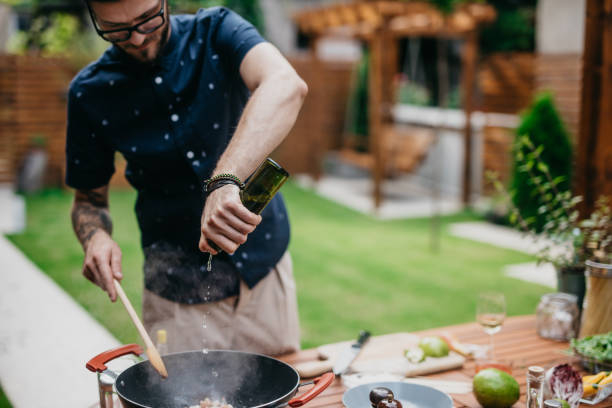
Don't use red wines that are super tannic 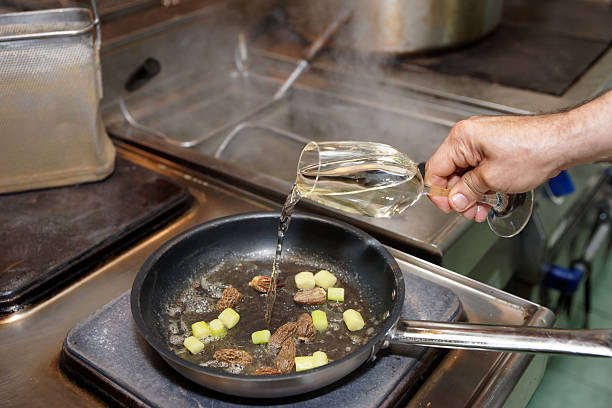
Don't use red wines that are super tannic -
Although (according to Forbes) making a comeback, sweet wines have historically not been the most often consumed varieties. You could question if it's a good idea to add it while you're cooking if you happen to enjoy them or if you have a bottle of sweet things that you don't know what to do with. According to Wine Mag, you should generally be cautious when pairing sweet wine with food. The acidity—not the sweetness—of wine is typically called for in recipes.
According to Wine Mag, a wine that is overly sweet would lack bite and instead impart an unwanted dose of syrupy flavor to a food that was intended to be savory. Of course, there are exceptions to this rule. The Guardian discusses a number of recipes that call for sweet wine. You can absolutely include that bottle of Moscato in your dish using these as examples. However, when it comes to the majority of the dinner dishes you're preparing, sweet wines are not what you want. Give your entrée something between bitter and sweet, and save the sweetest wines for dessert.
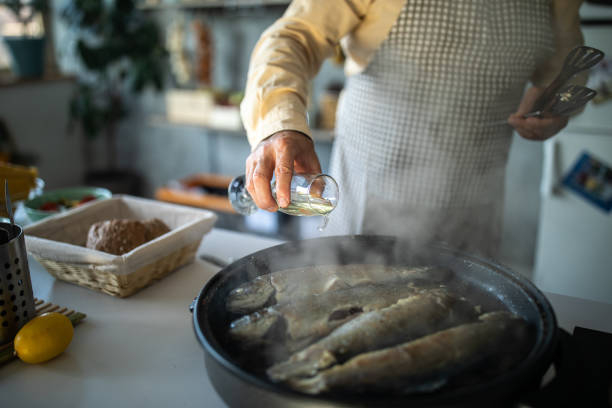
Don't use sweet wine 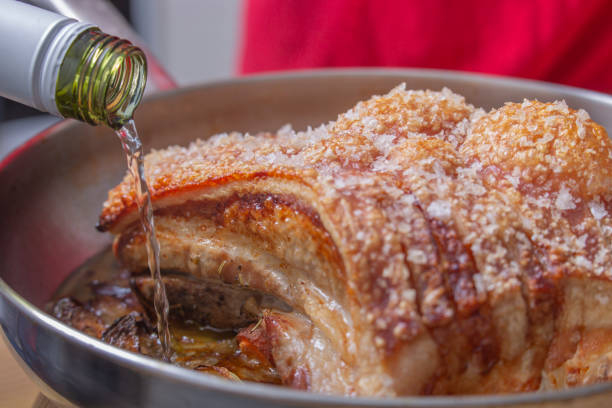
Don't use sweet wine -
The majority of the time, you add wine to a meal to make it more flavorful. It fits well with your delicious offerings. Although it's not advised to add wine to random baked products, certain recipes expressly instruct you to do so. For instance, you may create thick, velvety red wine brownies. Even chocolate cake may be made with red wine added.
These dishes are creative and provide something a bit unique. Additionally, it's a clever way to use up any extra wine you may have on the counter or in the refrigerator. Trifles and jellies are excellent ways to add more wine to your baking, according to The Guardian. The lesson of the tale? When cooking with wine, don't be afraid to experiment with something that seems a little out of the ordinary. If you're lucky, your cupcakes might turn out to be the best chocolate red wine cupcakes you've ever had.
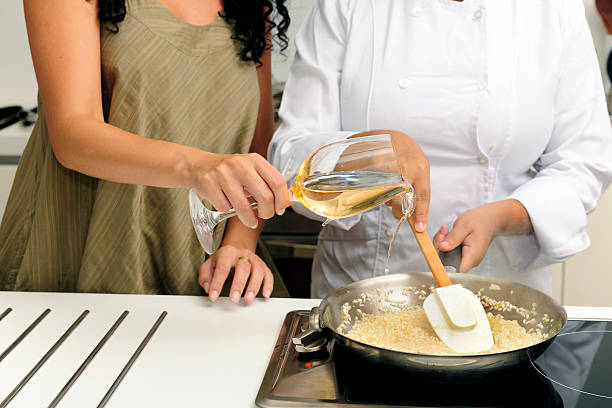
Use wine in your baking projects 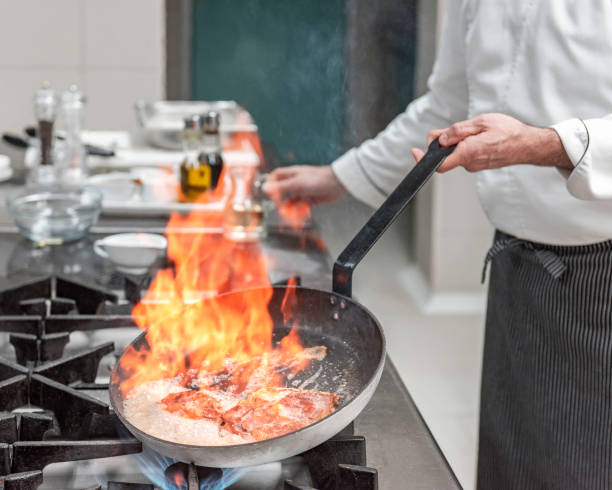
Use wine in your baking projects












